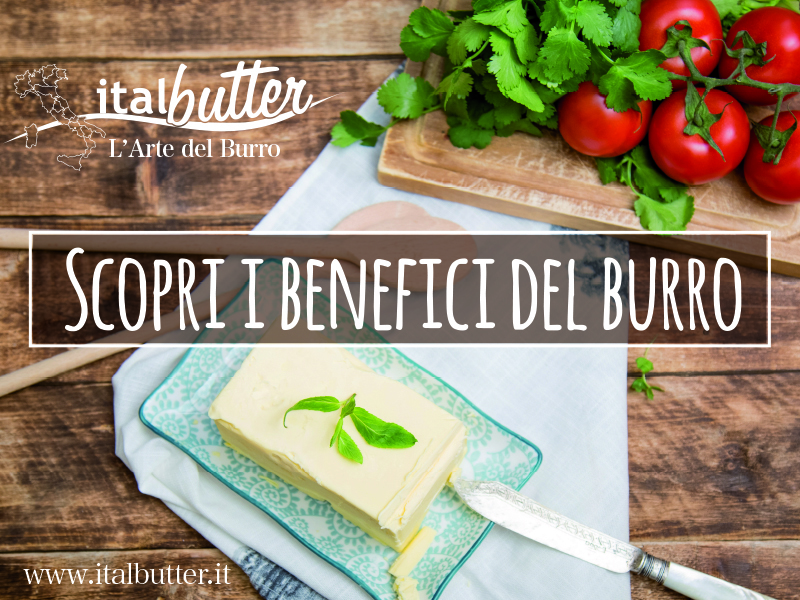
For many, butter is considered an enemy of healthy eating, instead it is redeeming itself from the bad reputation it carries. It is an excellent food easily digestible, because rich in short-chain fatty acids, a real source of energy for intestinal mucosa.
A new study by the University of Boston shows how to consume butter in moderation (no more than 14 g per day) to protect us from type 2 diabetes
The reason: a diet that is too low in animal fats reduces the work of the metabolism and alters the balance of insulin, triggering an excessive production.
This interferes with some important functions, including that of stimulating the storage of proteins for tissues and organs and allowing optimal use of sugars, deactivating the sense of hunger and the need for sweets.
Butyric acid, then, promotes the correct reproduction of the good bacteria of the intestinal bacterial flora, those that allow a better absorption of nutrients, as well as exerting an inflammatory and detoxifying function of the gastric mucosa.
In short, in the correct doses, butter is a real vehicle of well-being.
Butter is a true ally of the diet.
The absence of butter in the feed can predispose to weight gain.
Even if we exclude them from the menu, fats, especially those of butter, are still "manufactured" by our body, which tends to maintain a stable reserve.
THE BUTTER IS GOOD:
BONUS AND IMMUNE DEFENSE.
Rich in vitamin D, butter promotes the absorption of calcium and phosphorus, essential to make the bones strong and resistant especially in menopause when the fall of estrogen causes a decrease in the density of bone cells.
There's more: Vitamin D also regulates the concentration of calcium in the blood, keeping it constant.
And this aspect is very important because, among other functions, the mineral promotes the transmission of nerve impulses and the activity of enzymes, substances that accelerate immune cellular reactions.
Correct doses of vitamin D favor the maturation of macrophages, antibodies of the immunoglobulin type with beneficial protective effects from infections of any kind.
AGAINST ALLERGIES AND AGING.
10 g of butter a day provide the body with the amount of vitamin A necessary to declare war on wrinkles, stimulate the production of collagen, restoring firmness, tone and overall a soft and hydrated appearance.
But vitamin A also has the power to effectively fight acne and, in general, skin allergies, rebalancing the production of sebum. Furthermore, selenium and other antioxidants in butter counteract the formation of free radicals responsible for the skin aging process.
Over time, DNA accumulates errors in its replication and this can lead to cell self-destruction: thanks to the presence of antioxidants this process is slowed down and the skin retains a luminous and tonic appearance for longer.
BRAIN AND THYROID IN SHAPE.
A little butter, a real selenium casket, should never be missing from the breakfast biscuits in the morning.
Deficiencies of this mineral can cause defects in cerebral oxygenation and nervous excitability that slow down mental activity, as confirmed by a study by Deakin University (Australia).
In addition, selenium also has another characteristic, that of activating the thyroid hormones that play a key role in the activity of the heart, circulation, sugars, bone health and the nervous system.
There is more: the butter is rich in vitamin E, very active against cellular aging and able to ensure a proper brain development. VITAMIN E tocopherol ensures cognitive improvements in children and those over 40 who are struggling with stressful intellectual work.
EQUILIBRIUM CIRCULATION.
Sometimes scratches and grazes heal slowly: this means that we take little vitamin K.
Try adding a knob of butter to season the pasta or to make a tart. The butter, with its correct dose of vitamin K, promotes blood coagulation accelerating the healing of wounds and abrasions.
A study by the University of Rotterdam found that those who regularly eat butter are less prone to cardiovascular disease and are less exposed to arterial calcification processes.
In fact, this vitamin manages to transport calcium to areas of the body where it is needed, keeping osteoporosis under control
So today you make butter an integral part of your diet and choose the butter art in our butter italbutter
www.italbutter.it